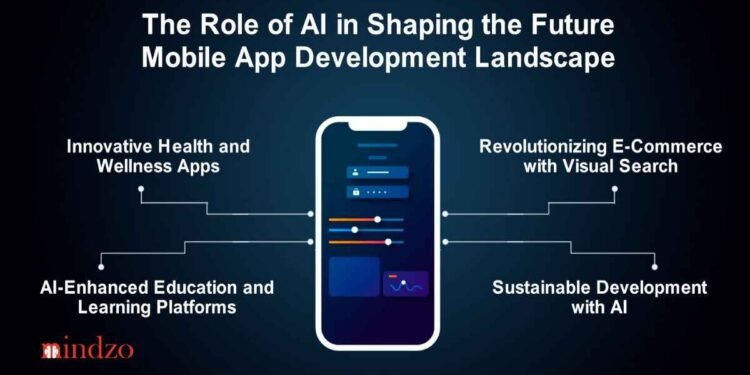1. The Rise of Mobile Apps
Mobile Apps and Technology: Shaping the Future The journey of mobile apps started with simple applications like calculators and games. Fast forward to today, and we have sophisticated apps that can control smart homes, monitor health, and even assist in learning new languages. The mobile app industry has grown exponentially, fueled by the increasing number of smartphone users worldwide.
2. Impact on Everyday Life
Mobile apps have integrated into every aspect of our daily routine. Need a ride? Use Uber. Want groceries delivered? Open an app. These apps have made life easier, saving time and effort. But beyond convenience, they are reshaping how we communicate, socialize, and even entertain ourselves.
3. Emerging Trends in Mobile Technology
The mobile tech landscape is evolving rapidly. Some major trends include:
- Internet of Things (IoT) Integration: Smart devices connected via mobile apps.
- Voice Recognition and Assistants: Alexa, Siri, and Google Assistant are becoming more advanced.
- Blockchain in Mobile Apps: Enhanced security and transparency in transactions.
4. Artificial Intelligence and Mobile Apps
AI-powered apps are changing the way we interact with technology. Think about chatbots that assist customers, recommendation engines in streaming platforms, or AI-based photo editing tools. The ability of AI to learn and improve user experiences is paving the way for smarter apps.
5. 5G and Enhanced Connectivity
The arrival of 5G technology means faster internet speeds, improved streaming quality, and lower latency. This will revolutionize how we use mobile apps, making real-time experiences like gaming, video calls, and remote work more seamless.
6. Augmented Reality and Virtual Reality
From gaming to virtual shopping experiences, AR and VR are taking mobile apps to the next level. Apps like Pokémon GO introduced AR to the masses, while companies like IKEA allow users to visualize furniture in their homes before making a purchase.
7. Mobile App Security: A Growing Concern
With increased mobile app usage comes the risk of cyber threats. Data breaches, phishing attacks, and malware are significant concerns. App developers are now focusing on improving security features like two-factor authentication and encryption to safeguard user data.
8. Impact on Businesses and E-commerce
Mobile apps have transformed businesses, particularly e-commerce. Companies like Amazon, Shopify, and local businesses are leveraging mobile apps to provide better customer experiences, increase sales, and enhance brand loyalty.
9. The Role of Cloud Computing
Cloud technology enables mobile apps to function more efficiently, offering features like real-time collaboration, data storage, and synchronization across multiple devices. Apps like Google Drive and Dropbox are great examples of cloud-powered mobile applications.
10. Wearable Technology and Mobile Apps
Smartwatches, fitness bands, and even smart glasses are enhancing how we interact with technology. These wearable devices rely heavily on mobile apps for tracking fitness, receiving notifications, and even making payments.
11. The Future of Mobile Payments
Cashless transactions are on the rise, thanks to mobile payment solutions like Apple Pay, Google Pay, and PayPal. As more businesses and consumers adopt digital payments, the future of mobile finance looks promising.
12. Sustainability in Mobile Technology
With increasing electronic waste and energy consumption, sustainability is becoming a major focus in the tech industry. Developers are now working on energy-efficient apps and eco-friendly innovations to reduce the environmental impact.
13. How Developers Are Adapting to Changes
The mobile app industry is fast-paced, and developers must constantly adapt. They are focusing on cross-platform development, adopting agile methodologies, and leveraging AI to improve app functionalities and user experience.
14. Challenges and Opportunities Ahead
While mobile apps offer endless possibilities, challenges such as data privacy concerns, rapid technological changes, and market saturation remain. However, opportunities in AI, AR, and IoT continue to drive innovation.
15. Conclusion and Future Outlook
Mobile Apps and Technology: Shaping the Future Mobile apps and technology are shaping the future in ways we never imagined. As innovations emerge, the impact on society, businesses, and individuals will be profound. The key is to embrace these changes and stay ahead of the curve.
FAQs
1. How are mobile apps changing the way we live?
Mobile apps provide convenience, efficiency, and improved accessibility in various aspects of life, from shopping to healthcare and entertainment.
2. What are the biggest trends in mobile app development?
AI, 5G, AR/VR, blockchain, and IoT integration are some of the biggest trends shaping mobile apps today.
3. Are mobile apps safe to use?
Most apps are safe, but users should be cautious by downloading apps from trusted sources and enabling security features like two-factor authentication.
4. How does 5G impact mobile apps?
5G enhances speed, reduces latency, and allows for more immersive experiences like cloud gaming and real-time video streaming.
5. What does the future hold for mobile apps?
The future of mobile apps includes AI-driven automation, smarter personal assistants, seamless connectivity, and more personalized user experiences.




















